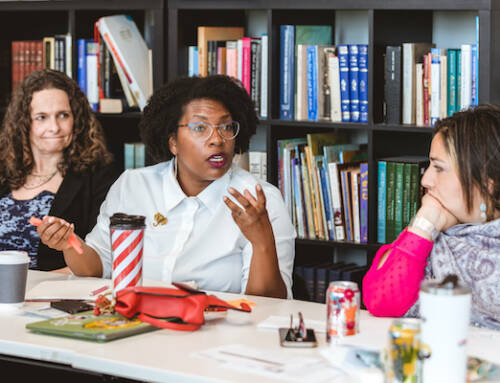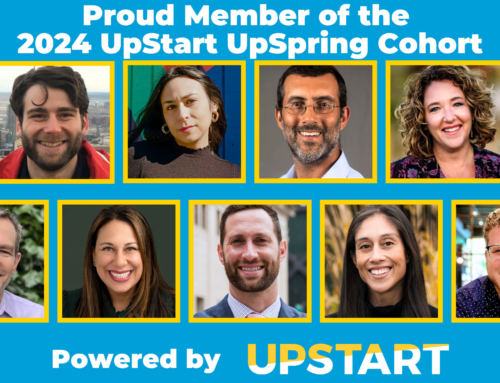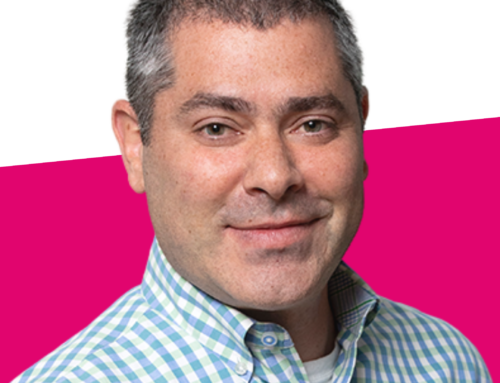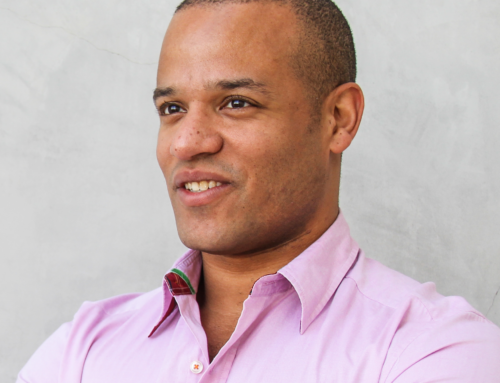The following post is an article from the Jweekly, written by Emma Silvers (j. staff)
On the sixth floor of an office building in San Franciscos Financial District, in a boardroom at the back of a bright, spacious office, Rabbi Noa Kushner is doing something most people don’t generally think of rabbis doing: asking for guidance.
You talk, Ill type, a consultant from UpStart Bay Area says to her. Looking ahead six months, what are your main goals?
Kushner is the founding rabbi of The Kitchen, a 16-month-old group that describes itself as one part indie Shabbat community, one part San Francisco experiment, and one part tool kit for DIY Jewish practice. The rabbi has regular meetings at UpStart to talk about where her young organization is headed.
UpStart Bay Area bills itself as a social venture, consulting firm, and incubator for innovative Jewish organizations and entrepreneurs and Kushner is far from the only one who uses its services.
Since 2006, she and a select group of other local entrepreneurial Jews many of them young, all of them with innovative and often great ideas have been chosen to link with UpStart and learn how to translate those ideas into action.
Each year, anywhere from two to six Jewish innovators are selected to be UpStarters for up to three years. Mostly they are people who have already made steps toward viable startup businesses.
For up-and-comers in the Bay Areas Jewish community, its a little like being new in school and getting invited to sit at the cool kids lunch table: UpStarters receive guidance in a range of areas, including help with business plans, coaching on fundraising techniques, marketing, programming and more. But they also become part of an extended network whose members rely on one another for advice and resources long after their official training has ended.
The Kitchen has been receiving guidance from UpStart for about 15 months. The other current UpStarters are Urban Adamah, G-dcast, Moishe House, Kevah, Fair Trade Judaica, Ketuv, A Wider Bridge, Wilderness Torah and Edah groups featured in j., which is no coincidence.
These are organizations that share a vision of Jewish life, that are about curiosity, excitement, growth, meaning, purpose, value, says CEO Toby Rubin, who founded what would become UpStart in 2006 under the auspices of the S.F.-based Bureau of Jewish Education.
A veteran of Jewish organizations, Rubin launched UpStart because she saw that established institutions in the Jewish community werent harnessing the talent of young people with fresh, creative ideas for Jewish living.
The sixth floor at 332 Pine St. known to UpStarters as the Innovation Center serves as headquarters for the 10 organizations that make up the current cohort, offering drop-in meeting space or desks for administrative work. Its set up in a hub formation, with couches serving as a casual meeting space at the center of the main room, and small office spaces on all sides.
Outside the boardroom, a long table holds brochures and reading materials from the other organizations that currently make up the UpStart Bay Area family. An oversize whiteboard calendar serves as a colorful master schedule for each groups meetings and events.
Their areas of programming are diverse from outdoor education to Torah study to LGBT work to the arts but each of these young Jewish organizations is going through a kind of adolescence, according to Rubin. The idea is to take people and small organizations that are poised to have a significant impact and say Here are the resources we know of that can be helpful to you, she says. That should be something thats available to everyone.
For Sarah Lefton, founder of G-dcast a nonprofit production company dedicated to improving Jewish literacy using online, interactive storytelling that support has given her immeasurable confidence in her own abilities as a leader.
I was coming from a creative background, in the media world, and my weak spot was definitely the administrative side, recalls Lefton, who had nearly a decade of filmmaking and creative marketing experience when she launched G-dcast in 2008. When schools and synagogues started inviting her to teach, Lefton would sometimes accept, but she was nervous about it. Id say Id love to, but just so you know, Im not a Jewish educator, she says.
So when G-dcast became an UpStarter in 2009, she started booking time with Maya Bernstein, UpStarts strategic design officer, who helped her see how she could present her work to different audiences. Three years later, Lefton says, Its gotten to the point where I feel ready to own that title [of Jewish educator], thanks in great part to the people Ive worked with at UpStart.
Julie Wolk, the founding co-director of Wilderness Torah the Bay Area nonprofit that seeks to reconnect Jewish traditions to nature and sustainable living says UpStart provided much-needed focus for her and co-founder Zelig Golden when the organization adopted them in 2009.
We came in with the excitement and the energy, she says. We had a vision. Wed planned a few successful events. We knew we had an idea with legs. But UpStart helped us create an entire structure with an accounting system, a fundraising plan they helped with some Jewish content, helped us get our name out in the community.
Even now, says Wolk, with her business needs changing as the organization grows, I know I can just call up with any question and theyll be there for us. Its immensely helpful. At the moment, shes working with UpStart staff on higher-level communications and branding work.
For Sara Bamberger, the brains behind Kevah a network of Jewish text study circles thats been expanding steadily, from just two groups in 2008 to roughly 50 in 2012 the benefits include much more than the consulting, fiscal support and help with programming.
For one, theres such moral support the knowledge that theres this wonderful team that believes in our vision. Especially at the beginning, when we were in the process of moving from Kevah being an idea to a reality, their confidence and enthusiasm was so helpful, says Bamberger, the nonprofits founder and CEO.
But just as important as the support from UpStarts small staff, adds Bamberger, is the dynamic among cohort members.
Its not unlike the experience of being an elementary school class where youre with peers who are in the same developmental stage, she says. And that has been a really positive and exciting way to launch a new venture especially since being an entrepreneur in the nonprofit world can be a pretty solitary existence.
Kevah has partnered repeatedly with other groups from its UpStart cohort, such as Moishe House and
G-dcast, over the past few years. In June, for example,
G-dcast produced an animated video written and performed by Kevahs first multigenerational study group, including participants ranging from 5 to 40 years old.
Were excited to collaborate because we like each other, and trust each other, Bamberger says. Without UpStart, theres no way we would have wound up knowing each other this well.
Arthur Slepian, founder of A Wider Bridge a nonprofit that aims to bridge the LGBT community in the Bay Area with that in Israel says being an UpStarter has allowed him to learn from the experiences of other, similar nonprofits.
Were at a point in our development where our budget is limited, and we cant really afford to bring on new staff, but we need resources, he says. Their staff is like having access to a field group of a wide variety of consultants, in education, development, planning. When they dont have expertise in a certain area, theyve introduced us to people who do, whether its accounting, legal, insurance, or marketing and social media.
UpStarts story began in 2004. While working at the Bureau of Jewish Education, Rubin was visited by a young woman named Abby Levine. Levine was looking for help with the JERICHO Project, her effort to involve Jews in a progressive agenda on immigration reform, but couldnt find what she needed financial support or startup networking services from established Jewish institutions like the BJE. She didnt fit in anywhere, Rubin says.
Rubin realized that if there werent resources for that kind of work, the Jewish nonprofit world was failing its next generation of innovators.
I didnt need to wait for a study to tell me young people werent showing up to take part in the old Jewish institutions, she says.
Having new, creative ideas in the community could help get young people to show up, but the established Jewish world didnt know how to nurture young peoples ideas, or harness this talent and creativity, Rubin recalls. We werent set up for it.
So she founded the Jewish Professionals Co-op, under the auspices of the BJE. Two years later, the network of services available to young Jewish startups split from the BJE and became UpStart. The organization now has a staff of six, a 12-member board and 10 advisers, including heavy hitters from the Bay Areas Jewish community, such as Marc Dollinger, San Francisco State Universitys Richard and Rhoda Goldman Chair in Jewish Studies and Social Responsibility.
Another sure sign of UpStarts success: Six years after its founding, established Jewish institutions see it as a worthy investment.
A new grant of id=”mce_marker”75,000 from the S.F.-based Jewish Community Federation will help fund UpStart in the coming year especially important as the organization just received the last of its funding from the soon-to-be-defunct Richard and Rhoda Goldman Fund, Rubin says.
UpStart plays a vital role in supporting innovation, says Jennifer Gorovitz, the federations CEO. So of course were excited to partner with them in igniting the next generation of Jewish thought and Jewish life, and continuing to build the local ecosystem of organizations, both new and old. Theyre engaging people in Jewish life in new ways.
While the basic UpStart program is funded entirely by local dollars including the Lisa and Douglas Goldman Fund, as well as many individual Bay Area donors new branches of the organization are growing quickly, and Rubin is determined to find ways to support them.
Though UpStart still offers services to up-and-coming organizations, demand for the staffs resources and collective expertise has meant theyre putting more energy into delivering programming advice and business strategy sessions to other organizations in the Bay Area and elsewhere.
Hazon, Keshet and Bend the Arc national organizations with a presence in the Bay Area and strong ties to UpStarts mission are residents, meaning they use space at the office without actually being part of the UpStarter cohort.
And UpStarts fee-based consulting work has increased steadily over the last two years: individuals, organizations and lay leaders can contact UpStart for a variety of training sessions, model programs or consulting work.
Another testament to the success of UpStart is its rate of expansion, due in large part to demand for its services from individuals and Jewish communities beyond the Bay Area.
UpStart has been hired by leaders in other Jewish communities to build replica UpStart programs there. One rabbi in Phoenix had it design a fellowship for her, and shape a grant program to support it.
But whats really booming for us are the more established organizations that want to learn entrepreneurial skills, Rubin says. Everyones got their different way of talking about innovation we help them actually put it into practice.
In the next year, a couple of big projects are on the horizon. The Walter and Elise Haas Fund is creating a learning community for executive directors of midsize nonprofits that, in Rubins words, tend to get overlooked such as the S.F.-based Bay Area Jewish Healing Center and the Rohnert Parkbased Jewish Community Free Clinic.
Their leaders will come together for training sessions in which UpStart staff will help them look at the real problems that are blocking their big ideas, Rubin says. The director of a Chicago-based organization for kids with special needs heard about the program and has plans to fly out to participate.
The other big project is a bicoastal collaboration with the Jewish Education Project in New York, designing a pilot professional development program with 10 New Yorkbased Jewish day schools. The idea, Rubin says, is a program that can be applied anywhere, to any type of educational community.
Also on the docket for the next year: figuring out how to make rent.
UpStarts lease is up in May 2013, and though Rubin says the agency currently is managing to squeak by on an annual budget of $400,000 a combination of individual and foundation dollars that just barely supports operations, programming and staff renegotiating the lease may add to the conundrum of how to grow as an organization while tightening an already tight belt.
But ultimately, Rubin says, UpStart looks toward the future, regardless of present hurdles.
I know there are a lot of boards and professional organizations right now that are facing challenging situations, and its very painful, she says. But its awesome that there are so many people who are seeing the promise of new ideas and new perspectives. To me, thats who we are as Jews.
Our purpose is to enable entrepreneurs to bring bold Jewish ideas to light. We help them reach Up to people in new ways that are meaningful, more inclusive, and create a brighter future for our Jewish community and the world we share.





